New Polling Shows Significant Ukrainian Support for Diplomacy to End the War
There is more dissent from the Zelensky government’s war aims than may appear.
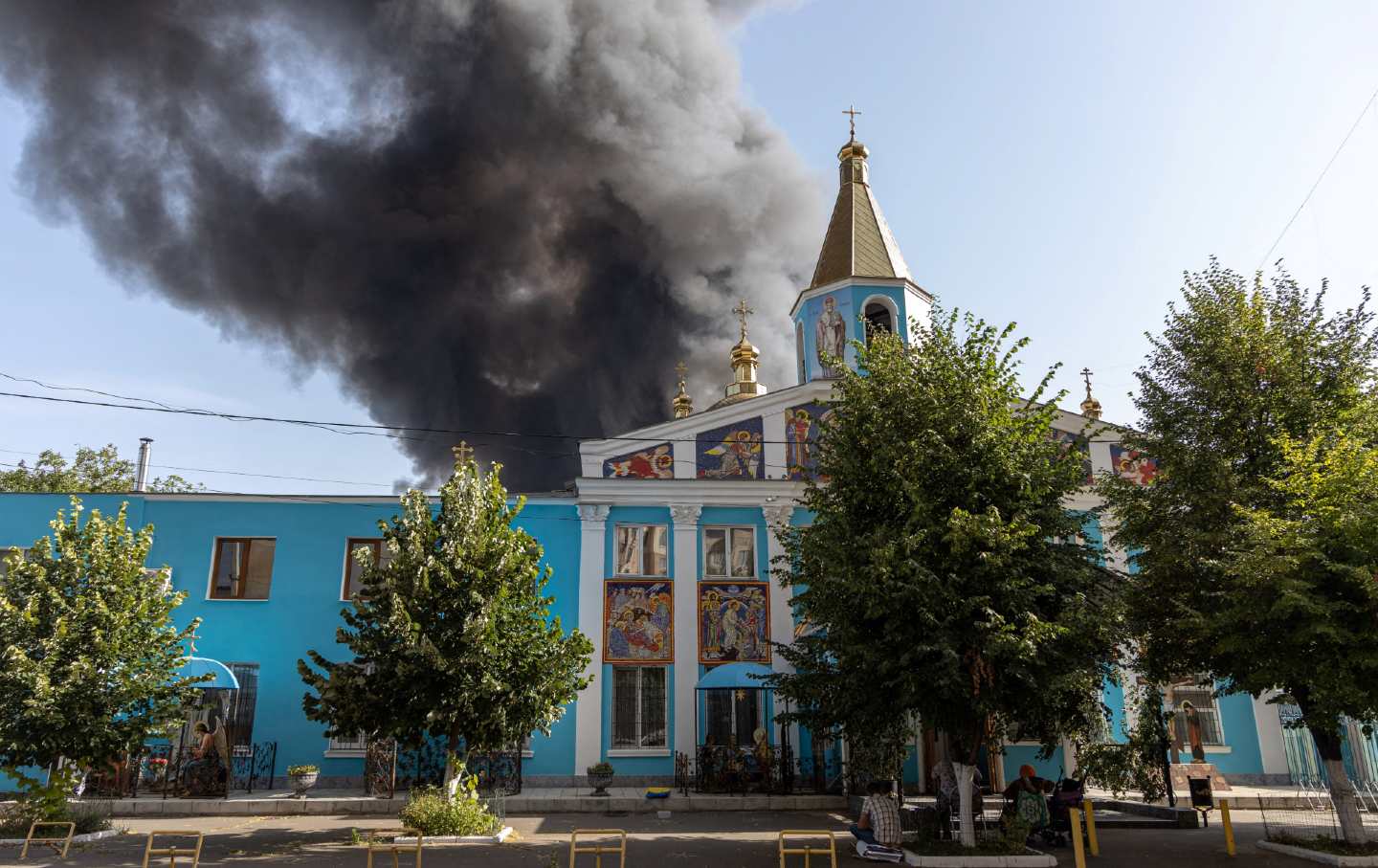
A peace summit held on the weekend of June 14 in Switzerland reaffirmed Kyiv’s commitment, against the backdrop of mounting skepticism among key international players, to a maximalist set of war aims as Russia’s invasion of Ukraine grinds into its third year.
Ukrainian President Volodymyr Zelensky has repeatedly said that his country must keep fighting—no matter the costs—until its 1991 borders are restored. The presumption that the vast majority of Ukrainians share this goal underpins the West’s tacit support for the Zelensky administration’s war aims.
But new polling showing significant Ukrainian support for diplomacy to end the war—paired with a closer look at other indications that Ukrainians are rejecting risking everything for victory—challenges this understanding.
The narrative of totally unified Ukrainian opinion is premised on polls from the earliest days of the war showing nearly unanimous Ukrainian support for the government and its handling of the war effort. This seeming consensus has steadily eroded since the peak of Ukraine’s battlefield successes in 2022, when 70 percent of survey respondents affirmed that Ukraine “should continue fighting until it wins the war.” That number dropped to 60 percent in the summer of 2023, according to Gallup. Polling since the failure of Ukraine’s 2023 offensive shows that 44 percent of Ukrainians favor entering into talks with Russia and only 48 percent—still a plurality but, notably, no longer a majority—believe Ukraine should fight on. Other recent polling shows that even in Kyiv, where Ukraine’s elite and bureaucracy is concentrated and political investment in the war effort is at its highest, complete confidence in Ukrainian victory is weakening.
Tellingly, recent surveys—including a new poll from the Carnegie Endowment for International Peace— suggest that the share of Ukrainians open to a negotiated settlement has dramatically risen over the past year and, if present trends hold, is well on the way to becoming a majority-held view.
These findings are reinforced by a decline in Zelensky’s approval rating and loss of public trust in the national TV Marathon, a platform of media channels that report on the war from a pro-government stance. Ukrainian bloggers with much more critical perspectives on Kyiv’s handling of the war are amassing large audiences on social media.
Another key metric of public investment in the nation’s war effort is support for mobilization. A plurality of Ukrainian men said in a February poll that they are not prepared to fight. One Ukrainian soldier told the BBC late last year, “It’s a total nightmare. A year ago, I wouldn’t have said that, but now, sorry, I’m fed up. Everyone who wanted to volunteer for war came a long time ago—it’s too hard now to tempt people with money. Now we’re getting those who didn’t manage to escape the draft. You’ll laugh at this, but some of our marines can’t even swim.”
Kyiv took the drastic step earlier this year of suspending consular services for men aged between 18 and 60 to contend with military recruitment problems. A staggering 11,000 Ukrainian men have opted out of participating in the war by illegally crossing into Romania, one of seven countries bordering Ukraine.
A closer look at the views of those who are not being captured by these polls suggests a likelihood that there is far more dissent from the Zelensky government’s maximalist war aims than it may appear.
The views of the roughly 6.5 million Ukrainians who have left the country of 44 million since the war’s outbreak are not accounted for in national polls. While we can’t presume to know the extent of support for maximalist war aims among refugees, they have effectively voted with their feet against active participation in the war. Likewise, the views of Ukrainians living in the territory controlled by Russia—Crimea and large portions of the Donbass—are typically not counted. But we do know from polls taken prior to the invasion that this population has consistently demonstrated a higher prevalence of pro-Russian attitudes.
Ukrainians living along the contact line are also vastly undercounted owing to the functional difficulties in reaching them in the midst of a war. Research does suggest that Ukrainians most directly affected by the war are markedly less likely to support the government’s maximalist positions. Ukrainians in active war zones who bear the brunt of the fighting are much more likely than their counterparts in western and central regions to support an immediate cease-fire and negotiations with Russia.
Beyond methodological issues, the results of wartime polls—regardless of where the war is being prosecuted—are skewed by overt and implicit domestic pressures. Wars produce a well-established “rally ‘round the flag” effect, which is clearly present in Ukraine, but not all proclamations of support for the Ukrainian war effort and the Zelensky administration’s war objectives can be taken at face value. Even in democratic societies, dissenting from mainstream views in a wartime context can invite a wide range of social sanctions, including loss of employment and community ostracism.
Popular
“swipe left below to view more authors”Swipe →Compounding these social pressures are legal ones. Ukraine’s sweeping collaboration laws criminalize, among other things, calling for “for support of decisions and actions of the aggressor state” and the “refusal to recognize Ukraine’s state sovereignty over the temporarily occupied territories.” It is unclear whether merely the act of calling for trading land for peace is enough to qualify as a criminal offense under this statute, but many Ukrainians may not want to take that chance in the context of heightened restrictions on types of political speech that contradict the government’s war aims.
There’s no question that Ukrainians have shown incredible courage and determination in resisting Russia’s invasion. But their fortitude cannot reverse the emerging grim realities in their society and on the battlefield. Ukraine now boasts the lowest fertility rate in the world; half of the country’s power generation capability has been destroyed. To sustain its struggling economy and stalling war effort, Kyiv is now auctioning off large state assets to the highest bidders. And on the front lines, Russia continues making steady advances, with eyes toward capturing strategic high grounds that risk propelling further advances. It’s increasingly clear that the longer this war persists, the worse off Ukraine will be.
In view of these long odds, continuing to conflate the interests of the Ukrainian government with the hopes and aspirations of the Ukrainian people is a way of ducking responsibility. Refusing to see how this ruinous war is driving Ukrainian appetites for an end to the bloodshed allows Western policymakers to fall back on oversimplified, unfounded presumptions about Ukrainian public opinion, rather than develop a coherent, viable, and humane strategy for ending this war.
Caricatures of a totally unified Ukraine behind the Zelensky government only help gloss over real and growing challenges facing the nation—often in service of war aims that are becoming more impossible by the week. It’s time policymakers outside the line of fire recognize these realities and begin forging a strategy to push all sides toward peace and begin rebuilding this decimated country.
Can we count on you?
In the coming election, the fate of our democracy and fundamental civil rights are on the ballot. The conservative architects of Project 2025 are scheming to institutionalize Donald Trump’s authoritarian vision across all levels of government if he should win.
We’ve already seen events that fill us with both dread and cautious optimism—throughout it all, The Nation has been a bulwark against misinformation and an advocate for bold, principled perspectives. Our dedicated writers have sat down with Kamala Harris and Bernie Sanders for interviews, unpacked the shallow right-wing populist appeals of J.D. Vance, and debated the pathway for a Democratic victory in November.
Stories like these and the one you just read are vital at this critical juncture in our country’s history. Now more than ever, we need clear-eyed and deeply reported independent journalism to make sense of the headlines and sort fact from fiction. Donate today and join our 160-year legacy of speaking truth to power and uplifting the voices of grassroots advocates.
Throughout 2024 and what is likely the defining election of our lifetimes, we need your support to continue publishing the insightful journalism you rely on.
Thank you,
The Editors of The Nation
More from The Nation
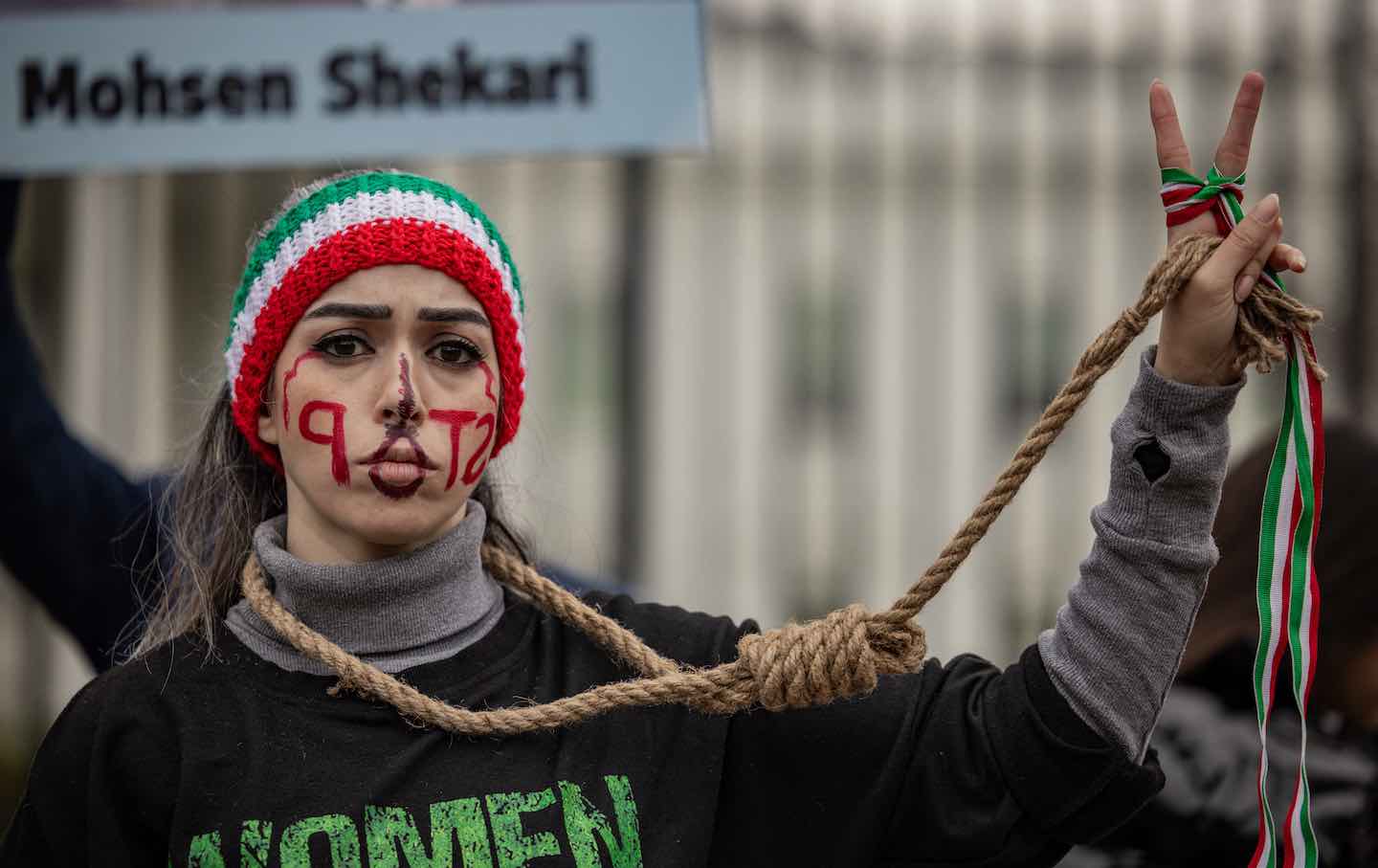
Women Are Leading the Resistance Against Executions in Iran Women Are Leading the Resistance Against Executions in Iran
Their prominence in the ongoing struggle for human rights has been met with fierce crackdowns by the state.
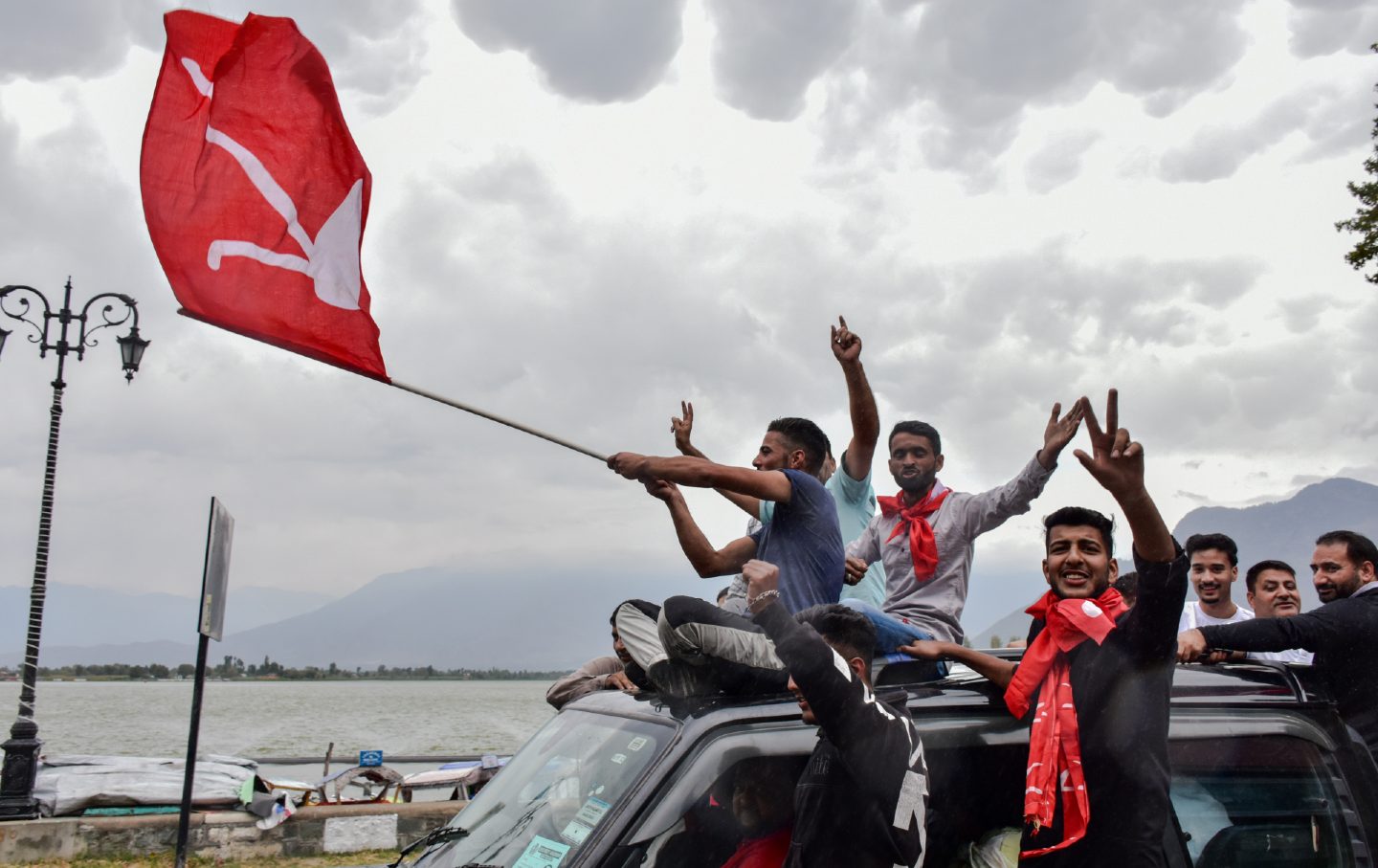
The Party Promising Kashmiri Statehood Wins an Election The Party Promising Kashmiri Statehood Wins an Election
In the first vote since India revoked the statehood status of Jammu and Kashmir, the National Conference party emerged with the most seats in the Legislative Assembly.

“The Israeli Army Martyred My Father”: What Gaza's Journalists Have Endured “The Israeli Army Martyred My Father”: What Gaza's Journalists Have Endured
Three Palestinian journalists describe what it is like to report from the middle of a genocide.
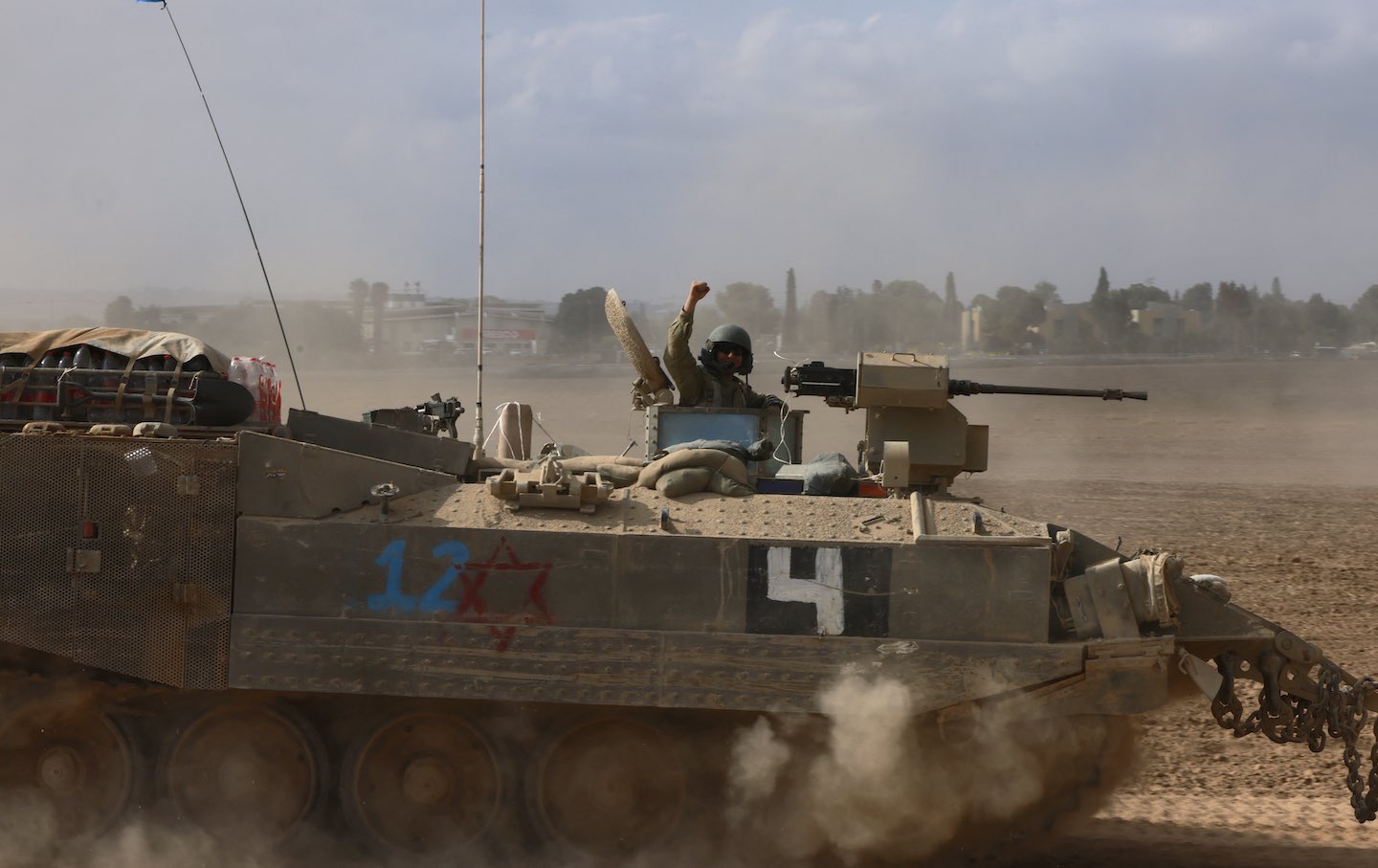
Israel Is Killing Whole Families in Gaza—With Weapons Made in America Israel Is Killing Whole Families in Gaza—With Weapons Made in America
Five-year old Hind Rajab was the victim of a bomb manufactured in Iowa. Months later, the Biden administration is still sending weapons.
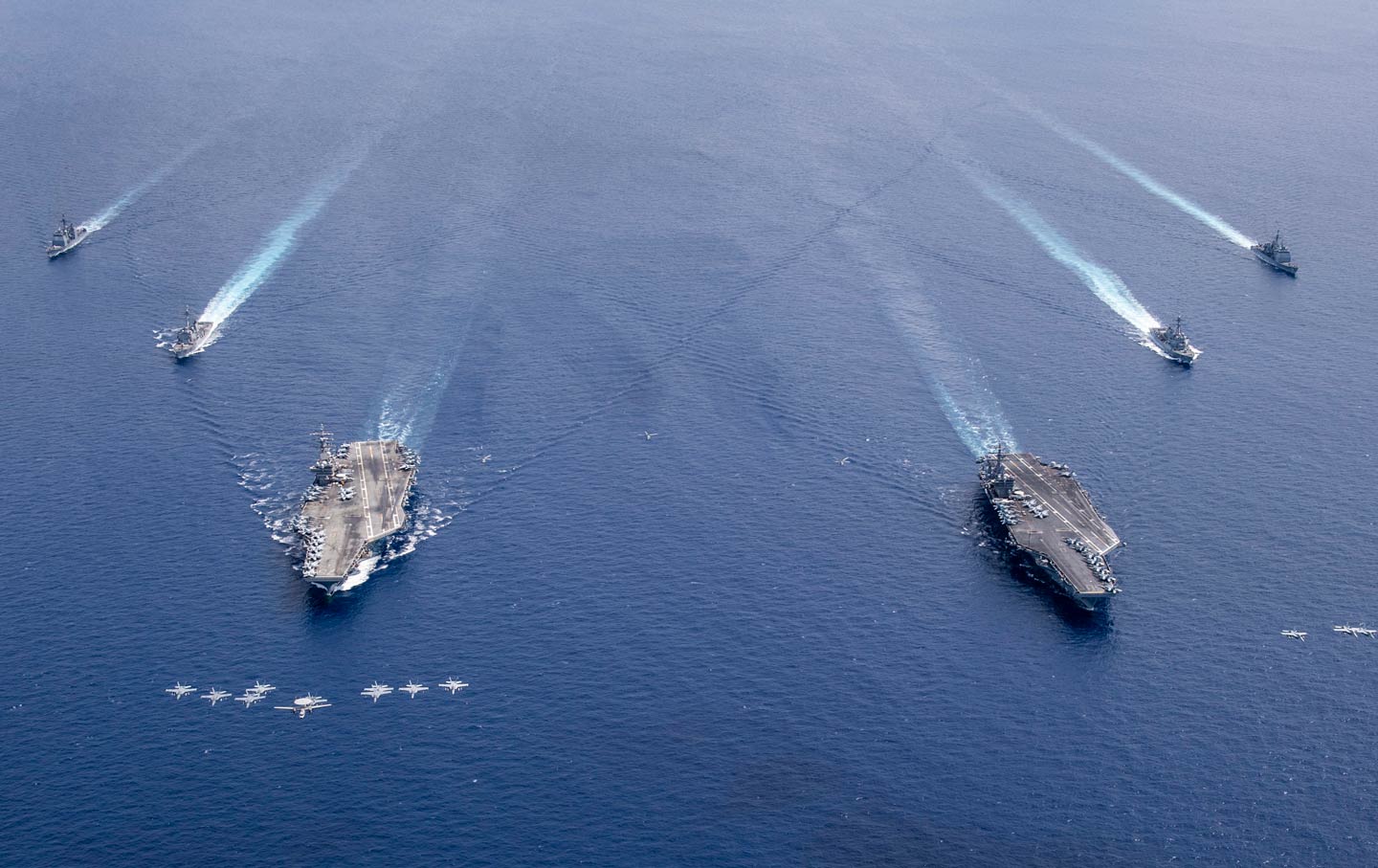
The New Cold War in the Pacific Is Dangerously Close to Heating Up The New Cold War in the Pacific Is Dangerously Close to Heating Up
Bristling with armaments and seemingly strong, the current ad hoc Western coalition may yet prove, like NATO, vulnerable to sudden setbacks from rising partisan pressure...
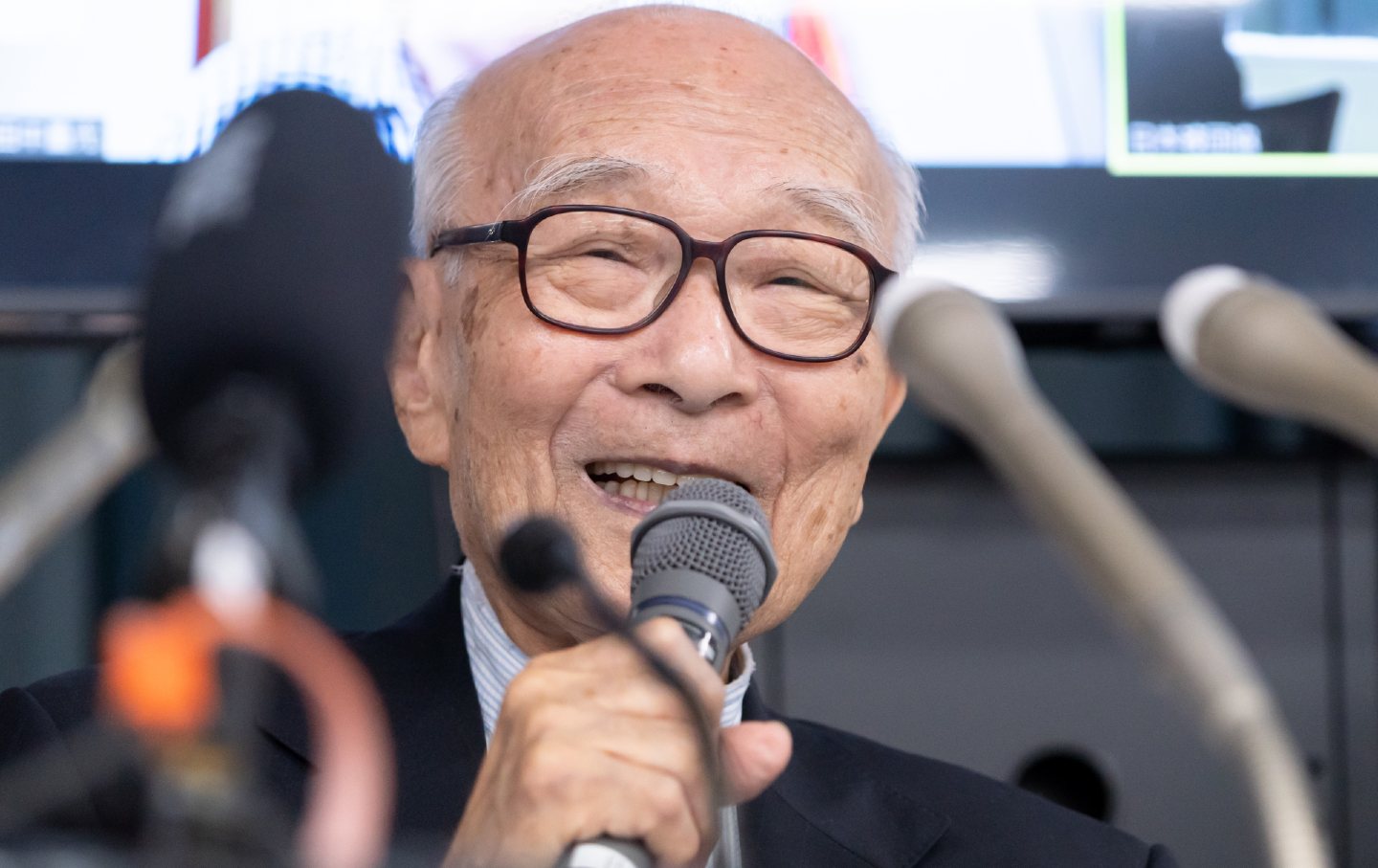
Nihon Hidankyo’s Bittersweet Receipt of the Nobel Peace Prize Nihon Hidankyo’s Bittersweet Receipt of the Nobel Peace Prize
The prize is a reminder that we must abolish and eliminate nuclear weapons.


